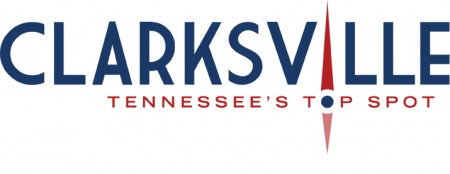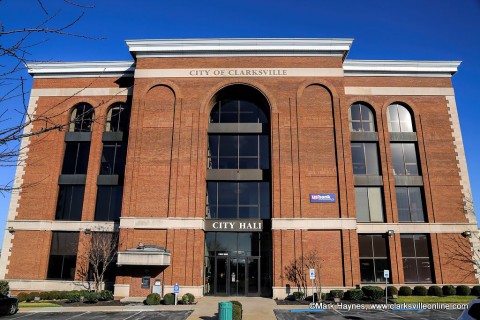City of Clarksville
 Clarksville, TN – In recent weeks, the City of Clarksville officials have received complaints about an increased presence of panhandlers on public rights of way in the City. Citizens say panhandlers congregate around highway exits and at intersections and often leave trash and debris creating a negative image of the community.
Clarksville, TN – In recent weeks, the City of Clarksville officials have received complaints about an increased presence of panhandlers on public rights of way in the City. Citizens say panhandlers congregate around highway exits and at intersections and often leave trash and debris creating a negative image of the community.
In response, the City is working to build a coalition of law enforcement, governments, social service agencies and church groups to promote a broad campaign to mitigate panhandling and attack the real problems of need and homelessness.

The program, under the working title of “Real Change, Not Spare Change,” will urge citizens to refrain from making direct donations to panhandlers.
Instead, the campaign encourages residents to contribute to agencies that provide food for people in need and to agencies whose mission is to provide services to homeless individuals and families.
“Clarksville is a compassionate community, and we have a number of well-managed, successful agencies that are actively fighting homelessness and providing food for those in need,” Clarksville Mayor Kim McMillan said. “With ‘Real Change, Not Spare Change’ we are suggesting that instead of handing money to panhandlers — who may or may not be homeless — we should donate to our local non-profits who will use these resources to attack the real problems people face.”
The Real Change campaign is being designed by the City’s Office of Housing and Community Development with the help of the local United Way and member agencies. Leaders are working on final details and expect to roll out the program in July.
“Handing cash to a panhandler is at best a temporary fix,” Mayor McMillan said. “At worst, it’s supporting a fraudulent enterprise for someone who’s not really in need. A ‘spare change’ transaction doesn’t fight the real problem, and as long as people give money to panhandlers, the problem will persist or even grow. With ‘Real Change’ we want to truly help people, and improve our community by encouraging donations to legitimate programs that can make a difference and help solve homelessness and hunger.”
Code Enforcement Efforts
On the enforcement front, the City of Clarksville has several ordinances that apply to roadside solicitation.
Citizens should be aware that, under rights afforded by the U.S. Constitution, it’s legal for a person to stand on the sidewalk or alongside a public street. It’s also legal to display a sign proclaiming poverty and a need for money.
But City officials do have law enforcement tools that relate to public safety and peddling and regulate solicitation on public roadsides and public property.
The so-called Panhandler Ordinance was approved by the City Council last year and prohibits a person from entering the roadway to exchange goods or money with someone in a vehicle.
The ordinance also tackles the problem of potential distraction of motorists. It says, “No person shall, by means of a sign or other device of any kind, use or occupy any portion of the public right-of-way, including any public street, median, alley or sidewalk, to attempt to alert, or for the purpose of attracting the attention of, the driver of a motor vehicle that is on a public street being used by, or open to use by, vehicular traffic, to any commercial activity.
Sec. 12-126. – Restrictions on use of city public rights-of-way for solicitation/panhandling.
(a) Except as permitted by other portions of this Code, no person shall use or occupy any portion of the public right-of-way, including any public street, median, alley or sidewalk, for the purpose of:
(1) Storing or exhibiting any goods, merchandise or other materials.
(2) Selling, or attempting to sell, any goods, merchandise or other materials, or any services.
(b) No person shall stand on or otherwise occupy any portion of the public right-of-way, including any public street, median, alley or sidewalk for the purpose of soliciting or accepting a donation of money or any other item from the occupant of any vehicle while the vehicle is on a public street being used by, or open to use by, vehicular traffic.
(c) No person shall, by means of a sign or other device of any kind, use or occupy any portion of the public right-of-way, including any public street, median, alley or sidewalk, to attempt to alert, or for the purpose of attracting the attention of, the driver of a motor vehicle that is on a public street being used by, or open to use by, vehicular traffic, to any commercial activity.
(d) Nothing in this section shall be construed to apply to:
(1) Licensees, lessees, franchisees, permittees, employees or contractors of the city, county or state authorized to engage in inspection, construction, repair or maintenance of streets, roadways, public utilities, or any public structure or property, or in making traffic or engineering surveys whether public or private.
(2) Any of the following persons while engaged in the performance of their respective occupations: firefighting and rescue personnel, law enforcement personnel, emergency medical services personnel, health care workers or providers, military personnel, civil preparedness personnel, emergency management personnel, solid waste or recycling personnel; public works personnel, public transportation personnel, or public utilities personnel.
(3) Use of public streets, alleys, sidewalks or other portions of the public right-of-way in areas which have been closed to vehicular traffic for festivals, parades or other events or activities permitted by the City.
(e) Nothing in this section or in any other part of this Code shall be construed as prohibiting the sale or distribution of newspapers, magazines, periodicals, handbills, flyers or similar materials, except that:
(1) Such activity shall be prohibited on any portion of any street within the city.
(2) Such materials shall not be handed, passed or thrown to the occupant of any motor vehicle that is on a public street being used by, or open to use by, vehicular traffic, nor shall any action be taken which is intended to, or reasonably calculated to, cause the vehicle occupant to hand, pass or to throw anything to the person selling or distributing the materials.
The so-called Peddler’s Ordinance requires anyone who sells goods or service in a public space to acquire a Peddler’s permit and follow certain rules. The ordinance says, in part, “No peddler shall have any exclusive right to any location in the public streets, nor shall any peddler be permitted a stationary location, nor shall he be permitted to operate in any congested area where his operations might impede or inconvenience the public.”
Sec. 5-201. – “Peddlers” defined.
The word “peddler” as used herein includes any person, whether a resident of the city or not, traveling by foot, wagon, motor vehicle, or any other type of conveyance, from place to place, from house to house, or from street to street, carrying, conveying, or transporting goods, wares, merchandise, meats, fish, vegetables, fruits, garden truck, or farm products or provisions who offers and exposes them for sale, or who makes sales and delivers articles to purchasers.
The word “peddler” also includes any person who, without traveling from place to place, sells or offers the same for sale from a wagon, motor vehicle, railroad car, or other vehicle or conveyance. One who solicits orders and as a separate transaction makes deliveries to purchasers as part of a scheme or design to evade the provisions of this chapter shall be deemed a peddler subject to the provisions of this chapter. The word “peddler” shall include the words “hawker” and “huckster,” but shall not be deemed to include “charity solicitors” and “subscription solicitors” who are regulated herein.
Sec. 5-202. – Permit required.
It shall be unlawful for any person to engage in the business of peddler within the city without obtaining a peddler’s permit in accordance with the provisions of this chapter.
(1963 Code, § 22-17)
Sec. 5-203. – Application for permit; accompanying documents.
Each applicant for a permit under this chapter must file with the commissioner of finance and revenue a sworn application, in writing on a form to be furnished by the commissioner of finance and revenue, which gives the following information:
(1) Name, description. Name and description of the applicant.
(2) Address. Address (legal and local).
(3) Description of business. A brief description of the nature of the business and the goods to be sold and, in the case of products of farm or orchard, whether produced or grown by the applicant.
(4) Name of employer, if any. If employed, the name and address of the employer, together with credentials establishing the exact relationship.
(5) Duration of business. The length of time for which the right to do business is desired.
(6) Description of vehicle. If a vehicle is to be used, a description of it, together with its license number and other means of identification.
(7) Photograph. A photograph of the applicant, taken within sixty (60) days immediately prior to the date of the filing of the application, which is two (2) inches by two (2) inches showing the head and shoulders of the applicant in a clear and distinguishing manner.
(8) Fingerprints, references. The fingerprints of the applicant and the names of at least two (2) reliable property owners of the County of Montgomery, Tennessee, who will certify as to the applicant’s good character and business responsibility, or, in lieu of the names of references, any other available evidence as to the good character and business responsibility of the applicant that will enable an investigator properly to evaluate the character and business responsibility.
(9) Previous convictions. A statement as to whether or not the applicant has been convicted of any crime, misdemeanor, or violation of any municipal ordinance, and, if so, the nature of the offense and the punishment or penalty assessed therefor.
(10) Medical certificate. Applicant shall file with his application a statement by a reputable physician of the city, dated not more than ten (10) days prior to submission of the application, certifying the applicant to be free of infectious, contagious, or communicable disease.
(11) Fee. At the time of filing the application, a fee of two dollars ($2.00) shall be paid to the commissioner of finance and revenue to cover cost of investigation.
(1963 Code, § 22-18)
Clarksville Police can write a citation if they see a violation of the Panhandler or Peddler ordinances or other applicable City codes. A City citation is a civil violation handled in City Court and carries a maximum penalty of $50.00. A violation of the Peddler’s Ordinance can result in revocation of the peddler’s license.



